Partsavatar.ca Shop Brake Pads & Parts
Ceramic brake pads have more strength and durability than organic brake pads. The only brake pads which are stronger than ceramic are metallic brake pads. Metallic is what you'd want for a bigger vehicle, such as a sports utility vehicle or truck. You cannot use ceramic brake pads in these vehicles, though. Stick with regular size vehicles.
SBS Honda VT1300CX Fury 1014 Street Ceramic Organic Rear Brake Pads

The material of organic brake pads contains less than 30% metal. Ceramic is a substance known for being incredibly durable and long-lasting, and ceramic brake pads are brake pads made of ceramic. Semi-metallic brake pads are those with a metallic content greater than 30%.
14D537CH Advantage Ceramic Rear Disc Brake Pad Set, Ceramic, Semi
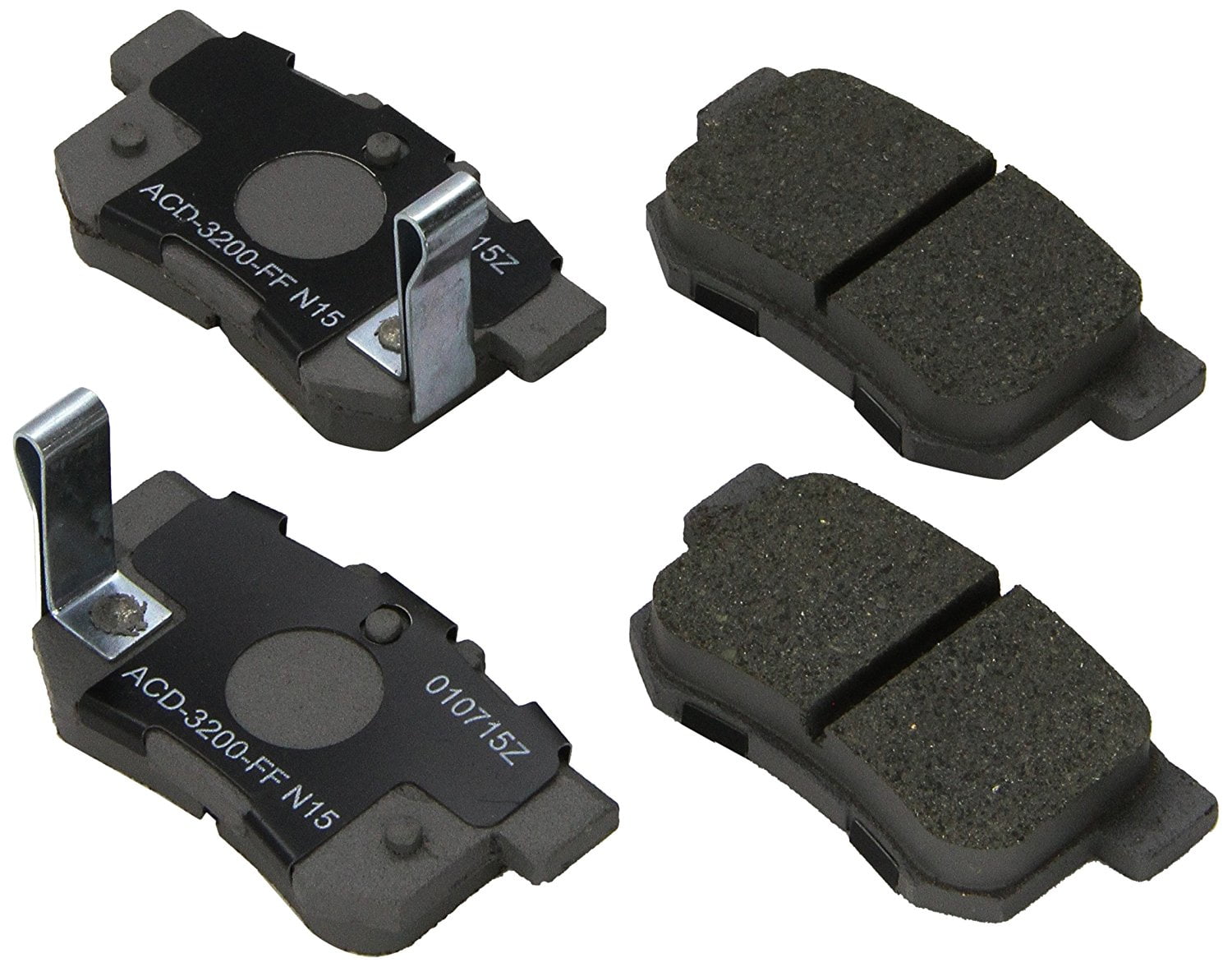
Let's take a closer look at ceramic vs organic brake pads. The main difference is that ceramic brake pads last longer than organic brake pads, but organic brake pads are frequently less expensive. They are neither intended for high performance nor heavy towing. In this situation, you would want metallic brake pads instead.
The Difference Between Organic, Ceramic, and SemiMetallic Brake Pads

1.1 Which Is Better? 2 Ceramic Brake Pads: Overview of its Features, Pros and Cons 2.1 Pros of Ceramic Pads 2.2 Cons of Ceramic Pads 2.3 Are Ceramic Pads Worth It? 3 Organic Brake Pads: Overview of its Features, Pros and Cons 3.1 Pros of Organic Pads 3.2 Cons of Organic Pads 3.3 Are Organic Pads Worth It? 4 Conclusion 5 References
Organic Vs. Ceramic Brake Pads carordinary

Ceramic brake pads are actually the hardest and most durable brake pads on the market. They even last longer than metallic brake pads. Organic brake pads don't usually last as long as the other two types of pads. Don't be so quick to write off organic brake pads, though. There's a chance organic brake pads might even work best in your.
The Pros and Cons of Ceramic Brake Pads Car Roar

Overall, ceramic and organic brake pads are good and reliable pads for small to medium size vehicles. The biggest differences are in their lifespan and price. If you want something cheap for a car you'll drive a little bit, then go with organic. If you want brake pads for a car that you use every day to go to work, then use ceramic. Author
Ceramic vs. Organic Brake Pads ️ Which Is the Better Option?

Organic brake pads, which come standard on about 67% of new vehicles sold within the United States, are made of a mixture of fibers and materials such as rubber, carbon compounds, glass or fiberglass, and KevlarⓇ, and are bound together with resin.
Organic vs. Ceramic Brake Pads Guide to Choosing the Best Brake Pads
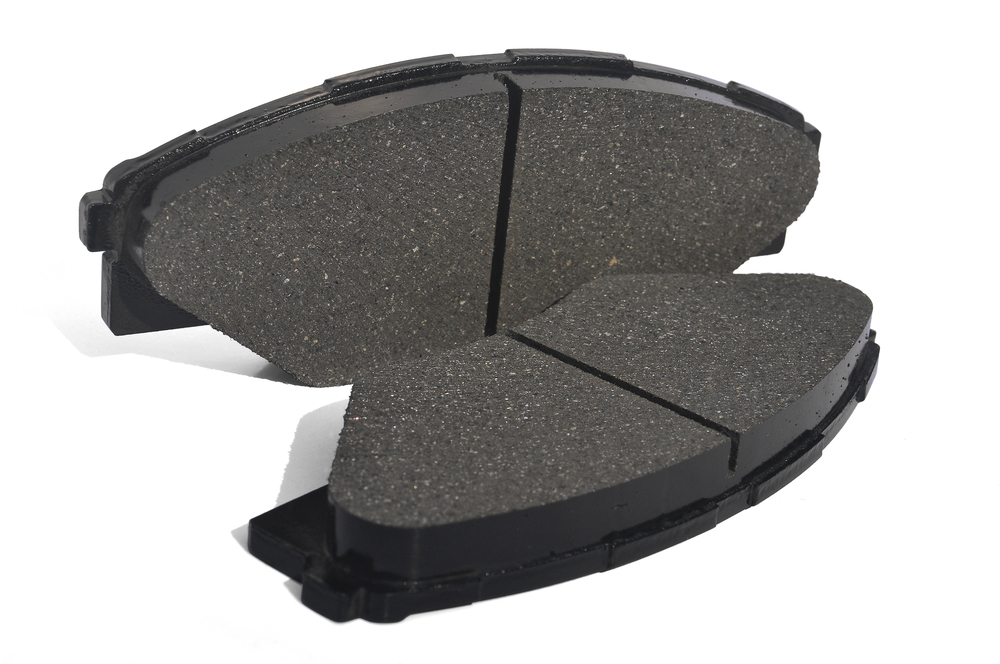
Expect to spend $50-$150 per wheel on average for a ceramic, vs. $35-$80 for a semi-metallic or $20-$70 for an organic. The spread depends on your vehicle's make and model and the product's brand and quality. Not Ideal in Extremely Low Temps: Ceramic pads may not perform as well in extreme cold.
Brake Pads Organic, Ceramic, And SemiMetallic What Are The

Ceramic vs. Organic Brake Pads: Which is Better? Choosing between organic or ceramic brake pads can be difficult if you do not know the exact differences between them. This is how they compare and which is better By Magnus Sellén Updated: February 12, 2023
ACT713 Akebono ProAct UltraPremium Ceramic Brake Pad Set Brake Pads

Ceramic brake pads aren't as abrasive on brake rotors when compared to organic brake pads, which is a big part of the reason why they won't wear down as quickly as organic ones do. Another thing that people have come to love as far as ceramic brake pads are concerned is that they're able to perform well in almost any climate.
Ceramic vs. Metallic Brake Pads Bridgestone Singapore
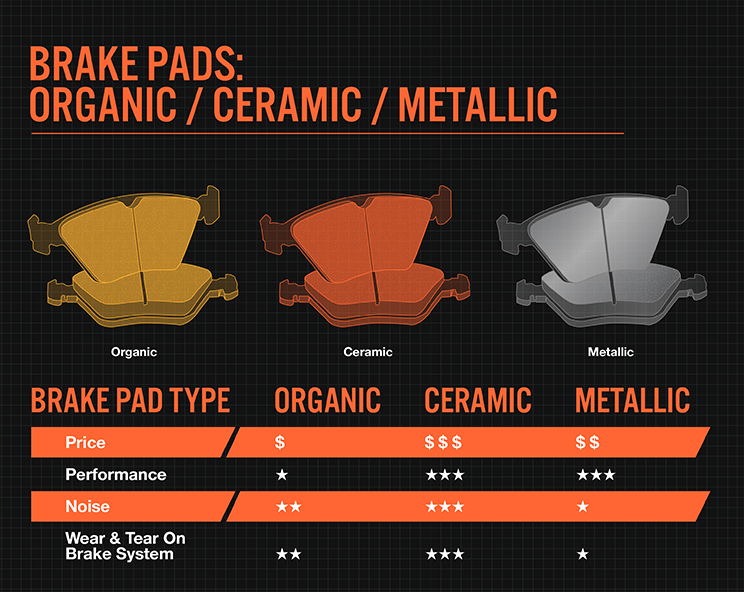
Ceramic and organic brake pads are two common and possibly better types of brake pads. If you are unclear about the actual differences between organic and ceramic brake pads , choosing one over the other can be challenging.
Akebono ProACT UltraPremium Ceramic Brake PadsACT1282 The Home Depot
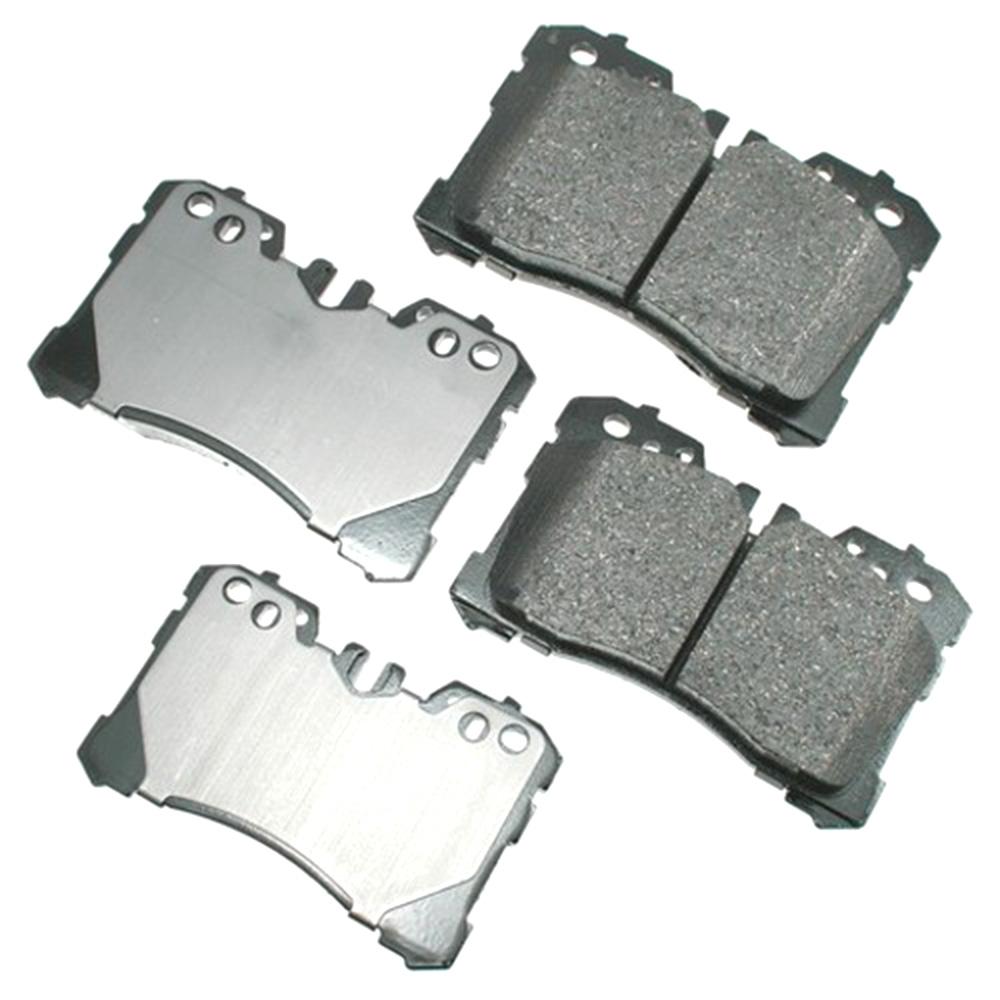
Organic brake pads wear out faster and require more force to engage than metallic or ceramic brake pads. Ceramic brake pads have copper fibers embedded within them, making them denser and more durable. Metallic brake pads tend to produce more brake dust and can be noisier than ceramic or organic pads.
ACDelco® 14D1070CH Advantage™ Ceramic Front Disc Brake Pads

Ceramic brake pads combine the positive characteristics of organic pads but with a longer time between replacements. Ceramic pads are quiet, like organic pads. These pads don't have any metal to scrape against the rotors. Ceramic pads provide a comfortable brake pedal feel.
Organic vs. Ceramic Brake Pads Guide to Choosing the Best Brake Pads
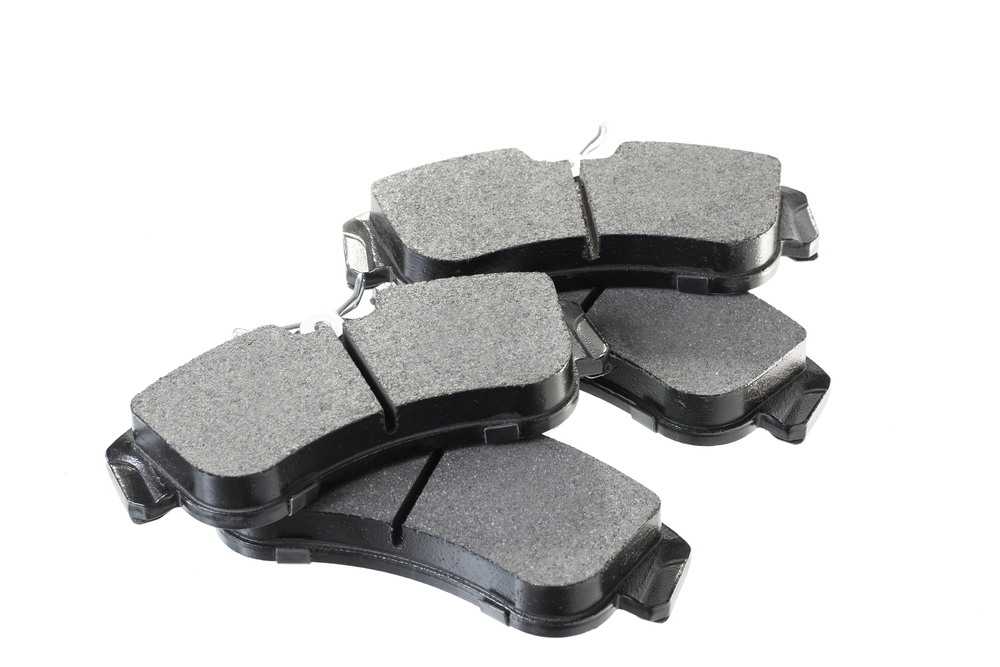
Softer than ceramic brake pads, organic brake pads can grip the braking disks well without exerting too much force into the brake rotors. This is the most significant advantage of organic pads, as too much force on the rotors can lead to cracks and breaks, which could be quite expensive to fix.
14D1033CH Advantage Ceramic Rear Disc Brake Pad Set, Ceramic, Semi
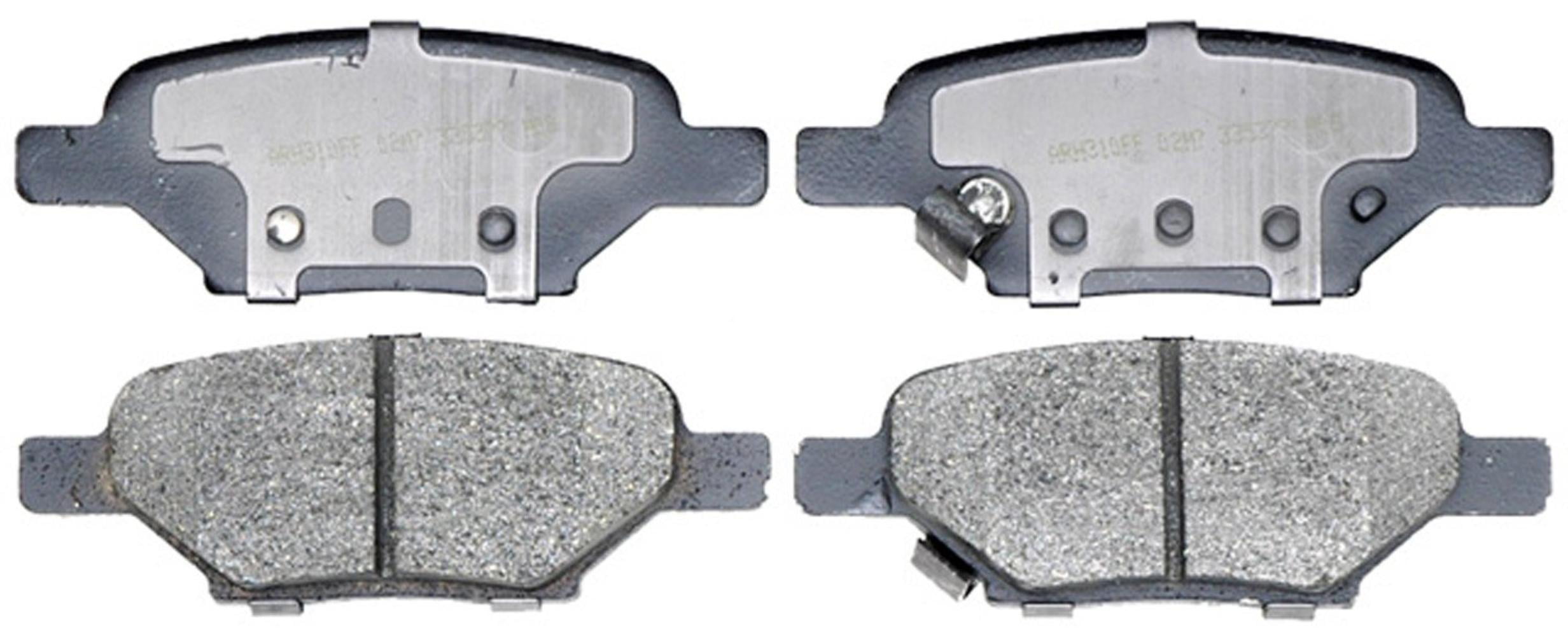
These brake pads are made from a type of dense ceramic that has copper fibres in it in order to increase friction and conductivity. Pros : Ceramic is the quietest brake pad material. Moreover, ceramic brake pads perform better than organic brakes in a range of temperatures. Cons : Ceramic brake pads are pricier than other types.
Overview Brake Pads Materials Organic, Ceramic, SemiMetallic 6th
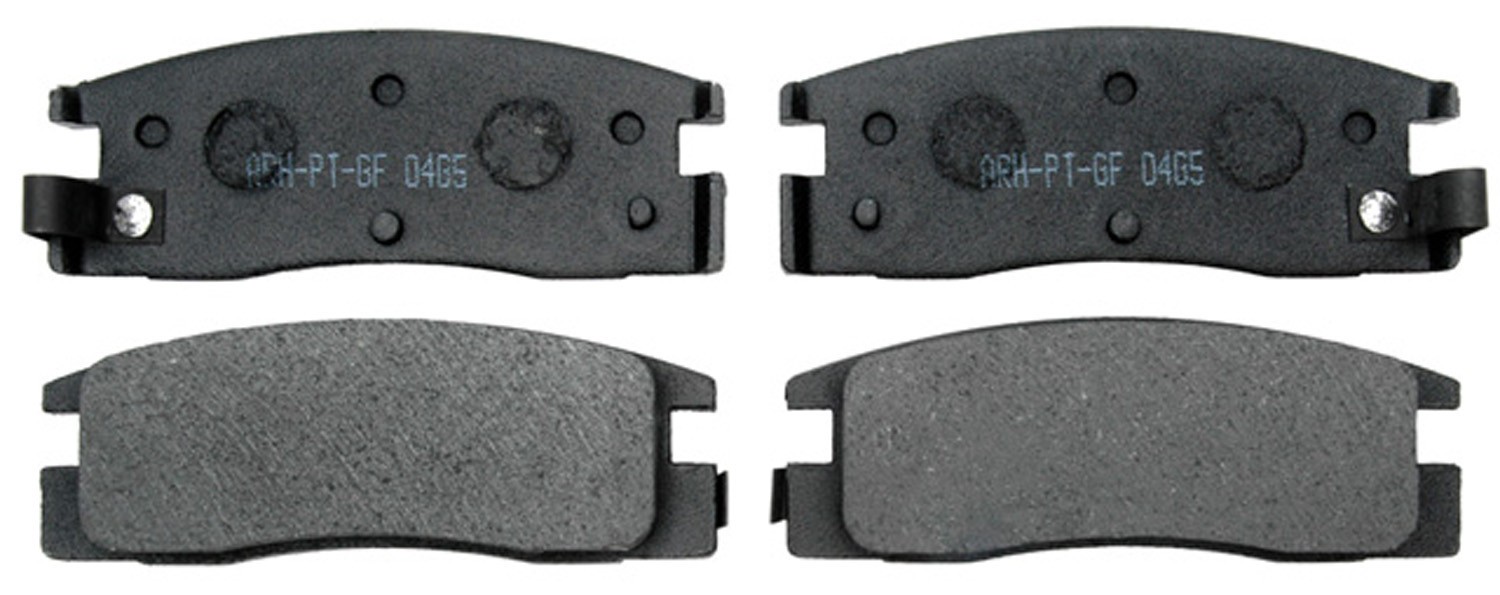
Ceramic and organic brake pads are two common and possibly better types of brake pads. These days, drivers typically have three options for brake pads: ceramic, semi-metallic, and organic. It wasn't always like that. Brake pads were initially put to use in the 19th century. The first leather brake pads were made for an early patent of their.